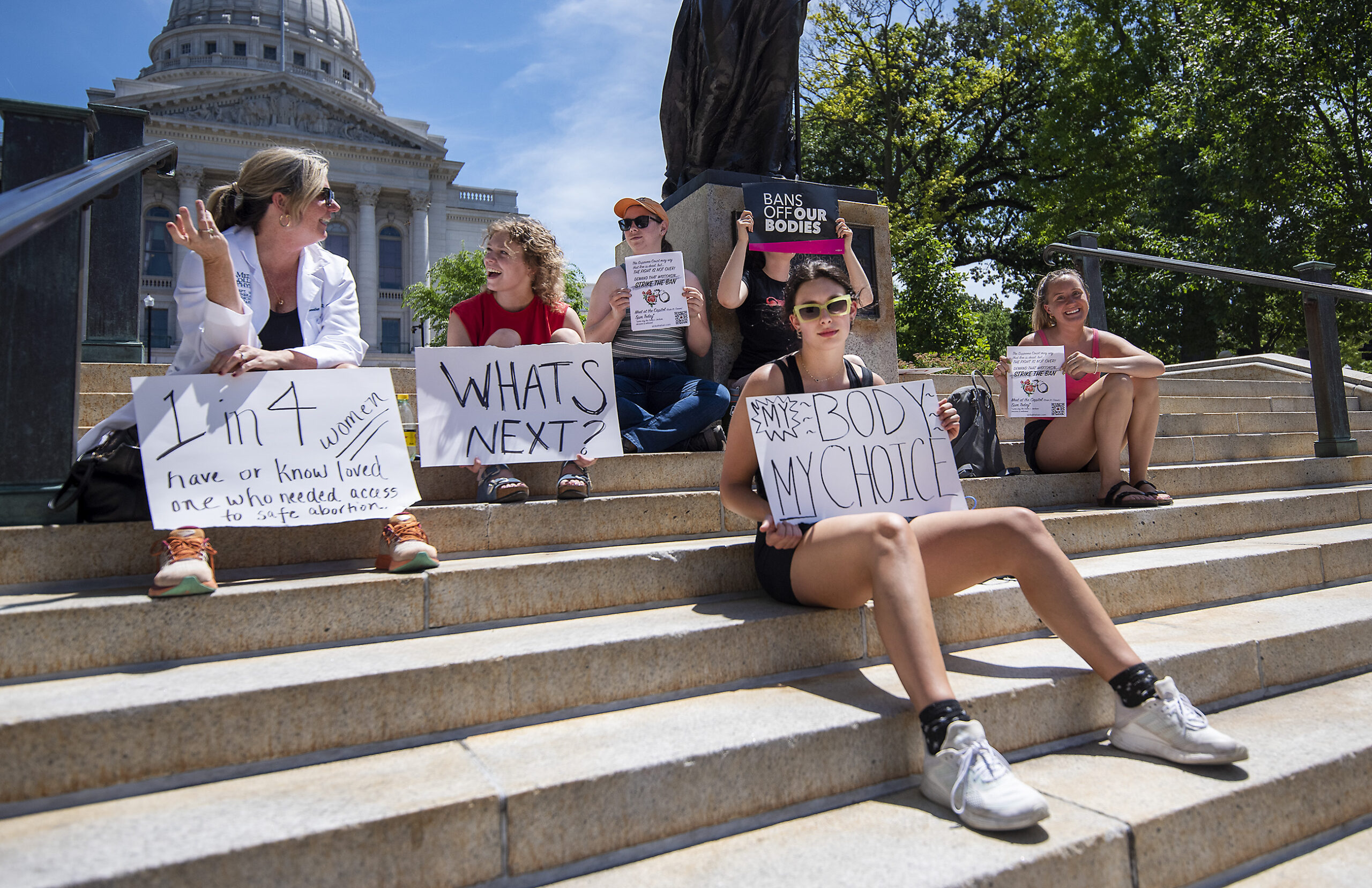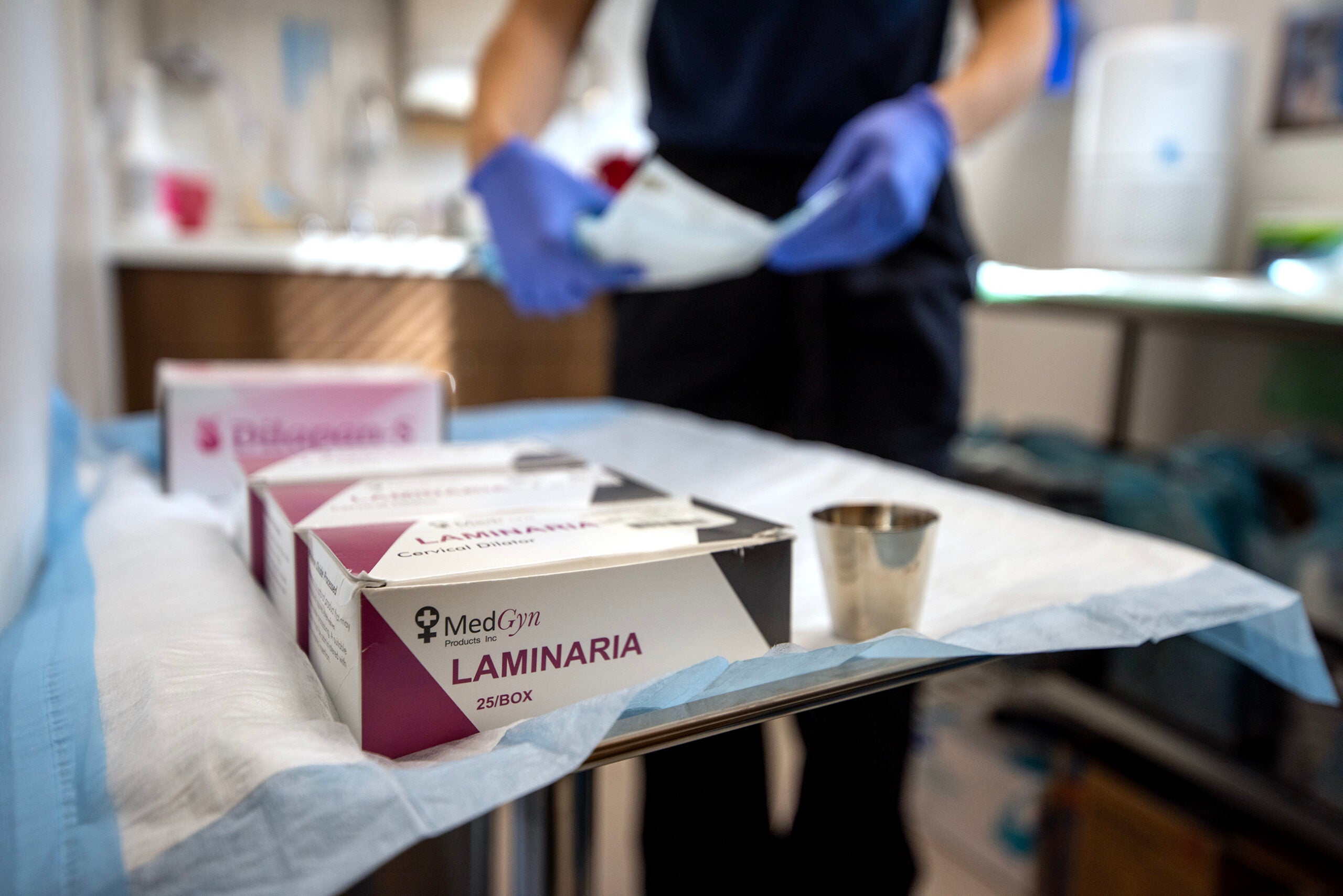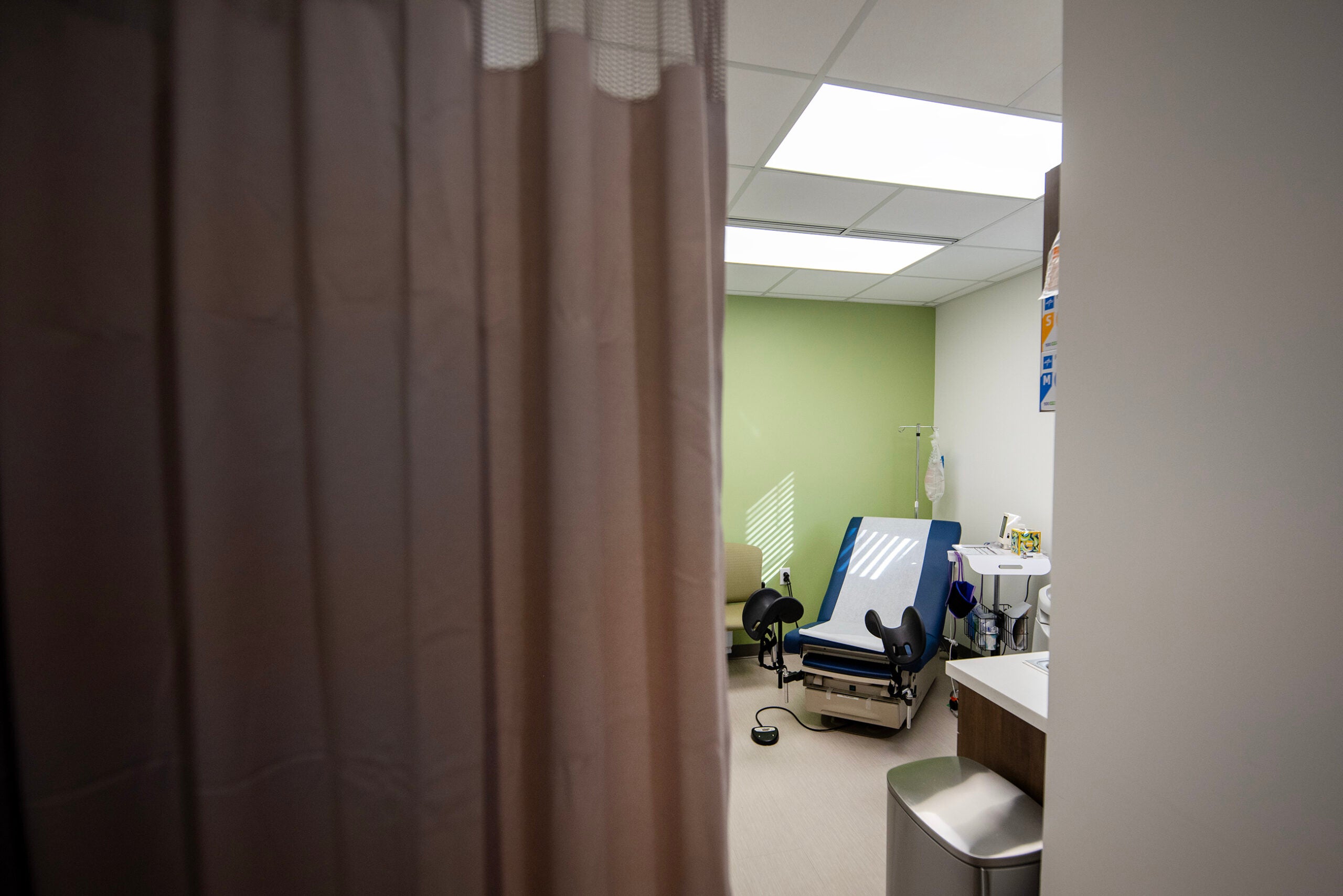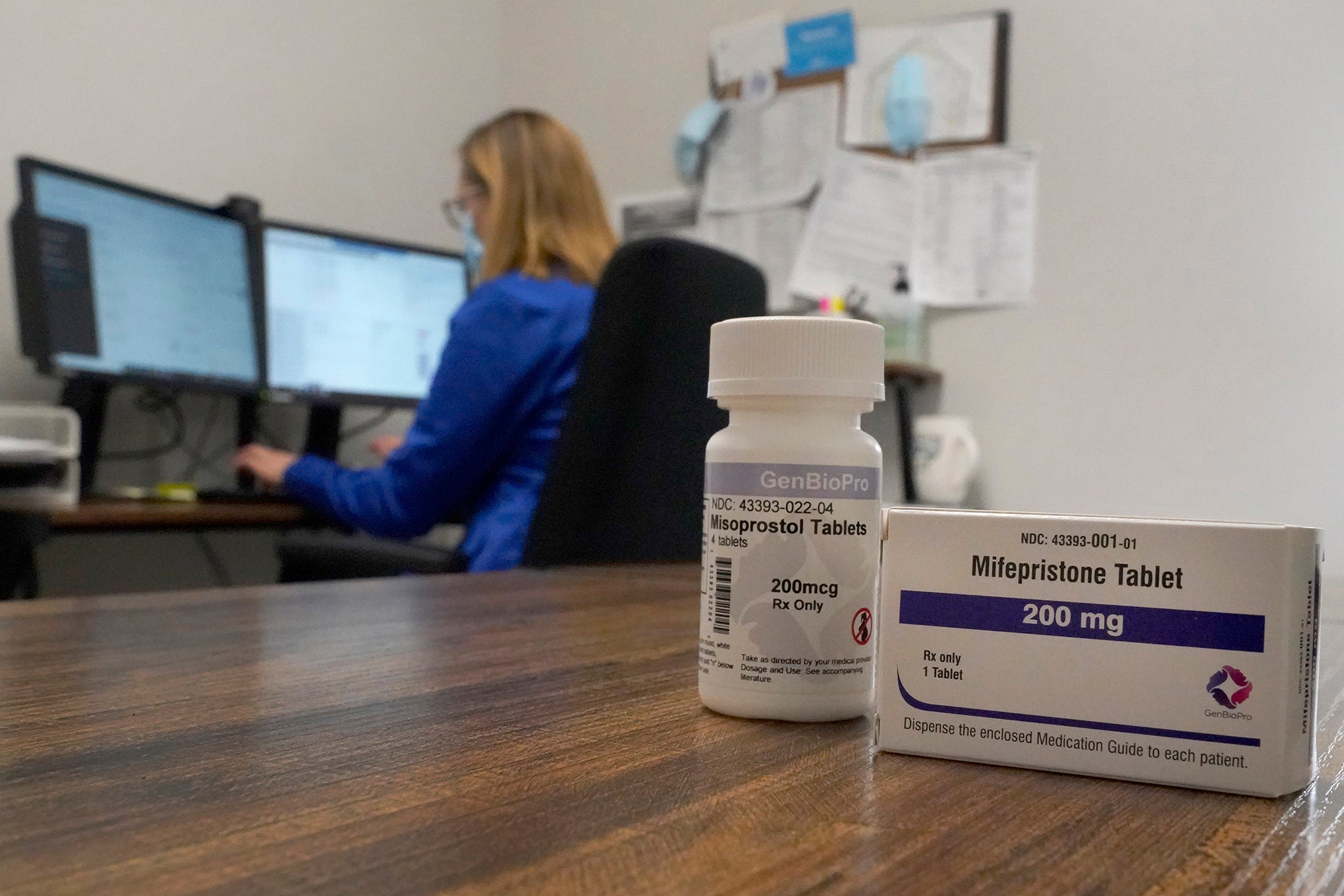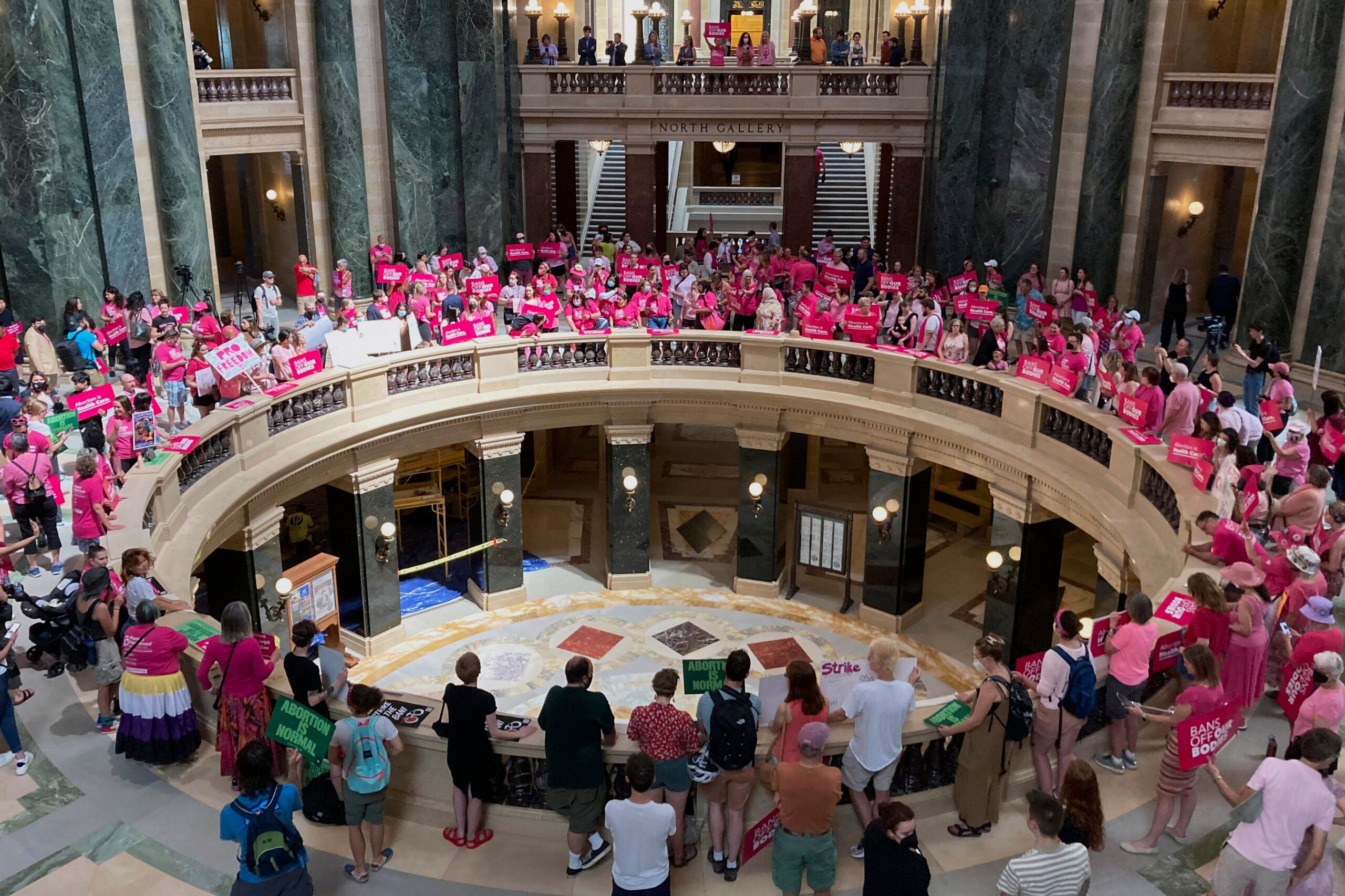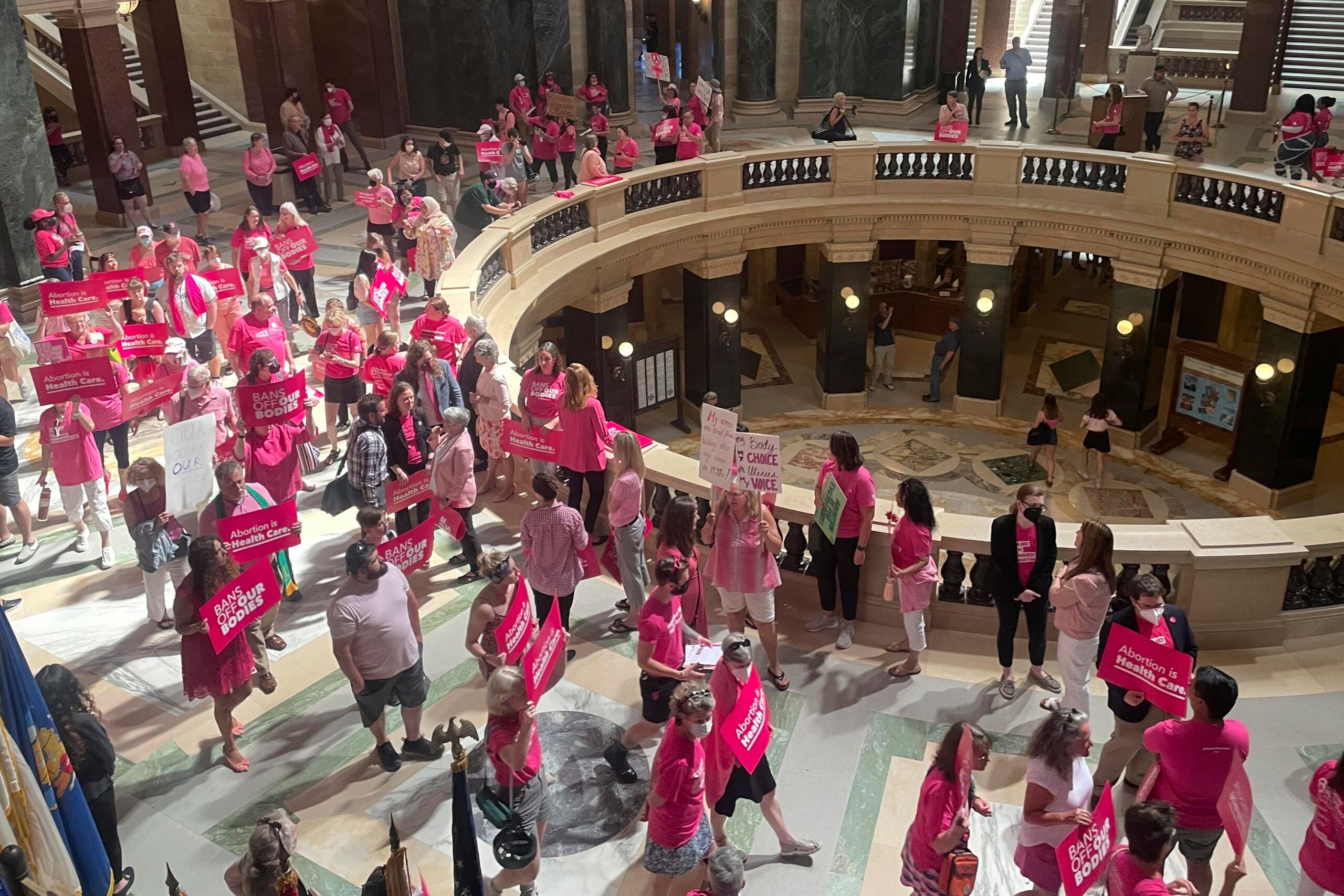Nearly all abortions are now illegal in Wisconsin.
The U.S. Supreme Court released a decision Friday overturning Roe v. Wade. The landmark case made abortion a constitutional right within the first two trimesters of a pregnancy — when a fetus is unable to survive outside the womb. Now the legality of the health care procedure is up to states.
In Wisconsin, the state’s 173-year-old abortion ban is once again the law of the land, making the procedure illegal unless deemed medically necessary to save the patient’s life. Providing an abortion is now a felony punishable by up to six years in prison and a fine of up to $10,000.
News with a little more humanity
WPR’s “Wisconsin Today” newsletter keeps you connected to the state you love without feeling overwhelmed. No paywall. No agenda. No corporate filter.
Shortly after the ruling was released, Tanya Atkinson, president & CEO of Planned Parenthood of Wisconsin, shared a video message saying the agency had been immediately forced to suspend abortion services.
“Today, our daughters have less rights than their mothers, less rights than their grandmothers,” she said in the video. “This is absolutely unconscionable. People should be able to make their own health care decisions, it should not be political.”
PPAWI President Tanya Atkinson reacts to the US Supreme Court decision to overturn Roe v. Wade. pic.twitter.com/5NQRNrZz2C
— Planned Parenthood Advocates of Wisconsin (@PPAWI) June 24, 2022
Nearly 70 abortion procedures with Planned Parenthood of Wisconsin scheduled for Friday and Saturday had to be canceled, the agency’s Medical Director Kathy King told the Associated Press. The group helped patients book appointments in nearby states where the procedure remains legal.
Lucy Marshall, president of Women’s Medical Fund in Madison, said no clinics in Wisconsin are providing abortion care as of Friday morning. But her group has laid the groundwork for partnerships with organizations in Illinois and Minnesota where abortions are still legal under state law. Those partnerships will help with financial assistance for things like travel, lodging and child care for people traveling out of state.
Women’s Medical Fund is also working closely with Pregnancy Options Wisconsin, or POWERS, a group of volunteer doctors, midwives, doulas and educators who have a hotline and website where people can ask questions and be connected to resources.
She said Friday’s court decision is a devastating blow to reproductive autonomy for people in Wisconsin and across the country. But her organization and other abortion rights advocates are not giving up the fight.
“WMF has been here since before Roe v. Wade and we are here after. We are not going anywhere,” Marshall said. “We’re committed to ensuring that anyone who needs an abortion has access to that no matter their income or zipcode.”
For social conservatives, the decision represents a historic victory in a decades-long battle. The Brookfield-based Pro-Life Wisconsin in a statement celebrated the overturning of the “egregious” Roe v. Wade decision.
“Today is a day many pro-life individuals have dreamt of for decades, if not entire lifetimes,” the group said.
“We have longed for the day when no more babies die and no more mothers cry,” state director Dan Miller said. “Nothing will stand in our way to see that abortion ends in Wisconsin!”
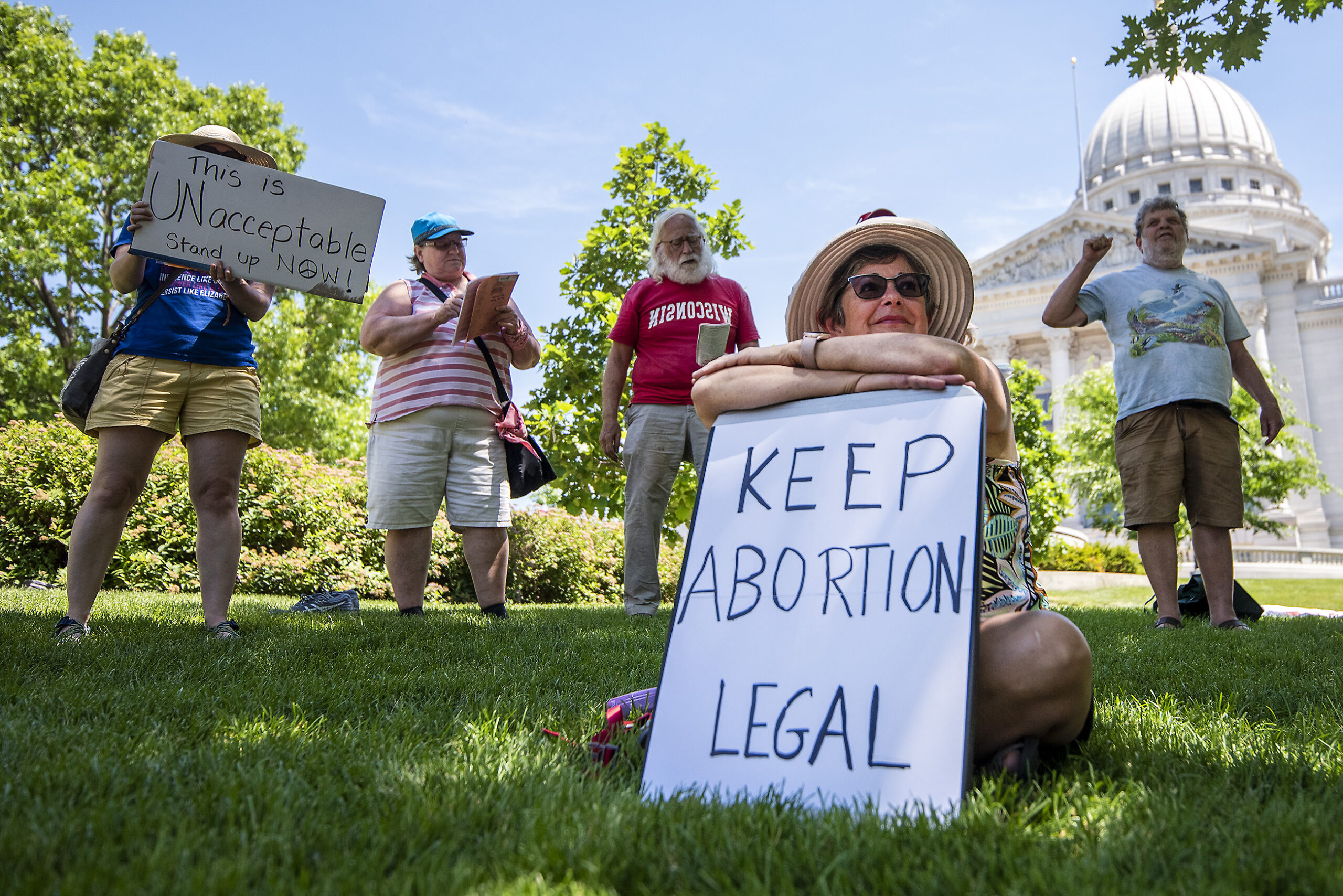
Protests against the Supreme Court decision are being planned in both Madison and Milwaukee Friday evening.
Wisconsin Attorney General Josh Kaul said Friday that the decision takes “us backwards almost 50 years.”
“Our office is reviewing today’s decision and will be providing further information about how we intend to move forward next week,” Kaul said in a statement. “We are at a crossroads for the future of reproductive freedom, and we need elected officials to step up and protect access to safe and legal abortion.”
After a draft opinion indicating the court was poised to overturn Roe was leaked, Kaul said he would not enforce the state’s abortion ban. Still, local law enforcement officials could choose to do so.
Gov. Tony Evers attempted to repeal the state’s abortion ban prior to the SCOTUS decision. But Republican lawmakers rejected the special session Wednesday, gaveling in and out within seconds.
In a statement Friday Evers said it was a “grim day” for the state and country.
“This is an absolutely disastrous and unconscionable decision by the U.S. Supreme Court, the consequences of which I hoped to never see again in my lifetime,” Evers wrote. “I know many across our state and nation are scared—worried about their own health and about the health and safety of their family members, friends, and neighbors, who could very soon see the ability to make their own reproductive healthcare decisions stripped from them.”
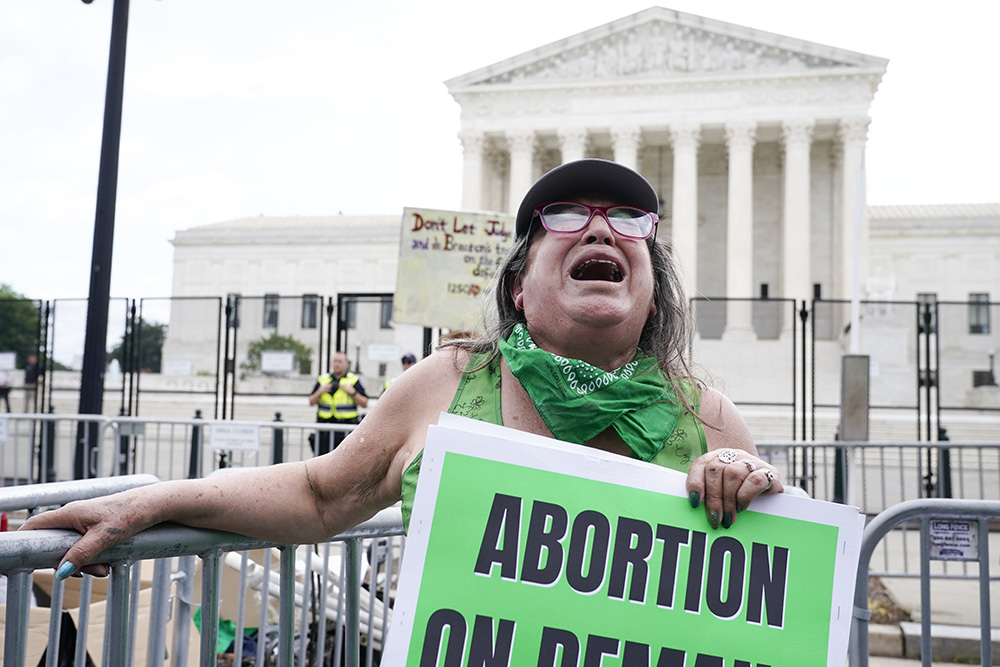
Wisconsin Medical Society President Dr. Wendy Molaska called on lawmakers Friday to pass legislation acknowledging physicians’ rights.
“Today’s decision raises concerns that could result in significant interference with the physician-patient relationship — the sanctity of which is the bedrock of our healthcare system … Inevitable confusion over the continued validity of that 19th century law makes proactive legislative action prudent,” Molaska said in a statement.
“The health and safety of our patients is our top priority,” she continued. “Wisconsin law should reflect that priority and ensure physicians can have full and frank discussions with patients about their health care without fear of imprisonment.”
Dr. Madelaine Tully, a family medicine specialist in Milwaukee, said the decision has paralyzed services.
“I can’t stress enough, pregnancy is something that moves along. If you’re six weeks pregnant today, you’re going to be eight weeks pregnant in two weeks, you’re going to be 12 weeks pregnant in a few more weeks. That is a much faster process than changing laws,” Tully said Friday during a press conference.
“This is happening right now. This is affecting women today,” Tully added. “This is affecting women in such a way that we are most likely going to lose some patients … because of this reckless and cruel decision from the Supreme Court.”
UW Health on Friday said the loss of safe, legal abortion access would be predominantly felt by underserved rural areas and marginalized populations.
“As we enter a time of rapid change and uncertainty, UW Health will put the needs of our patients first and foremost to ensure they receive not just the best care but the best medical advice related to their care options,” the statement read.
A reproductive health researcher in Wisconsin previously told Wisconsin Public Radio that getting an abortion in Wisconsin is more difficult than in other states because of state laws, including a 24-hour waiting period and a high-profile law former Republican Gov. Scott Walker signed banning all non-emergency abortions after 20 weeks of gestation.
In a national Marquette Law School poll in May, two thirds of adults polled said abortion should be legal in at least most cases. In a Marquette Law School poll this month that surveyed just Wisconsin residents, 58 percent of respondents said they are “very concerned” about abortion policy. The June poll also shows 31 percent said abortion should be legal in most cases, 27 percent legal in all cases and 24 percent illegal in most cases.
Editor’s note: This story will be updated. WPR’s Jenny Peek, Andrea Anderson, Rob Mentzer and Hope Kirwan contributed reporting to this story.
Wisconsin Public Radio, © Copyright 2025, Board of Regents of the University of Wisconsin System and Wisconsin Educational Communications Board.

